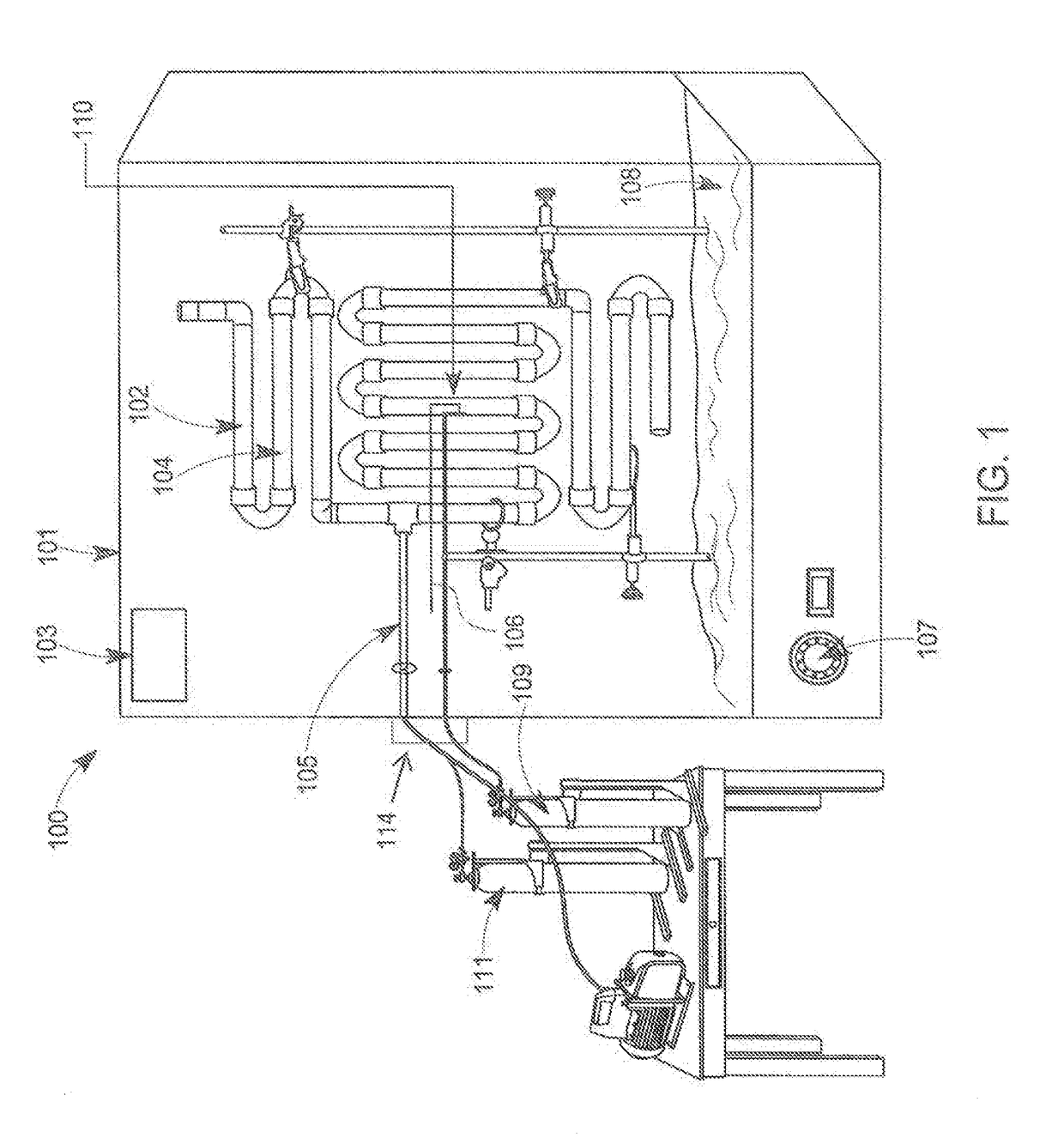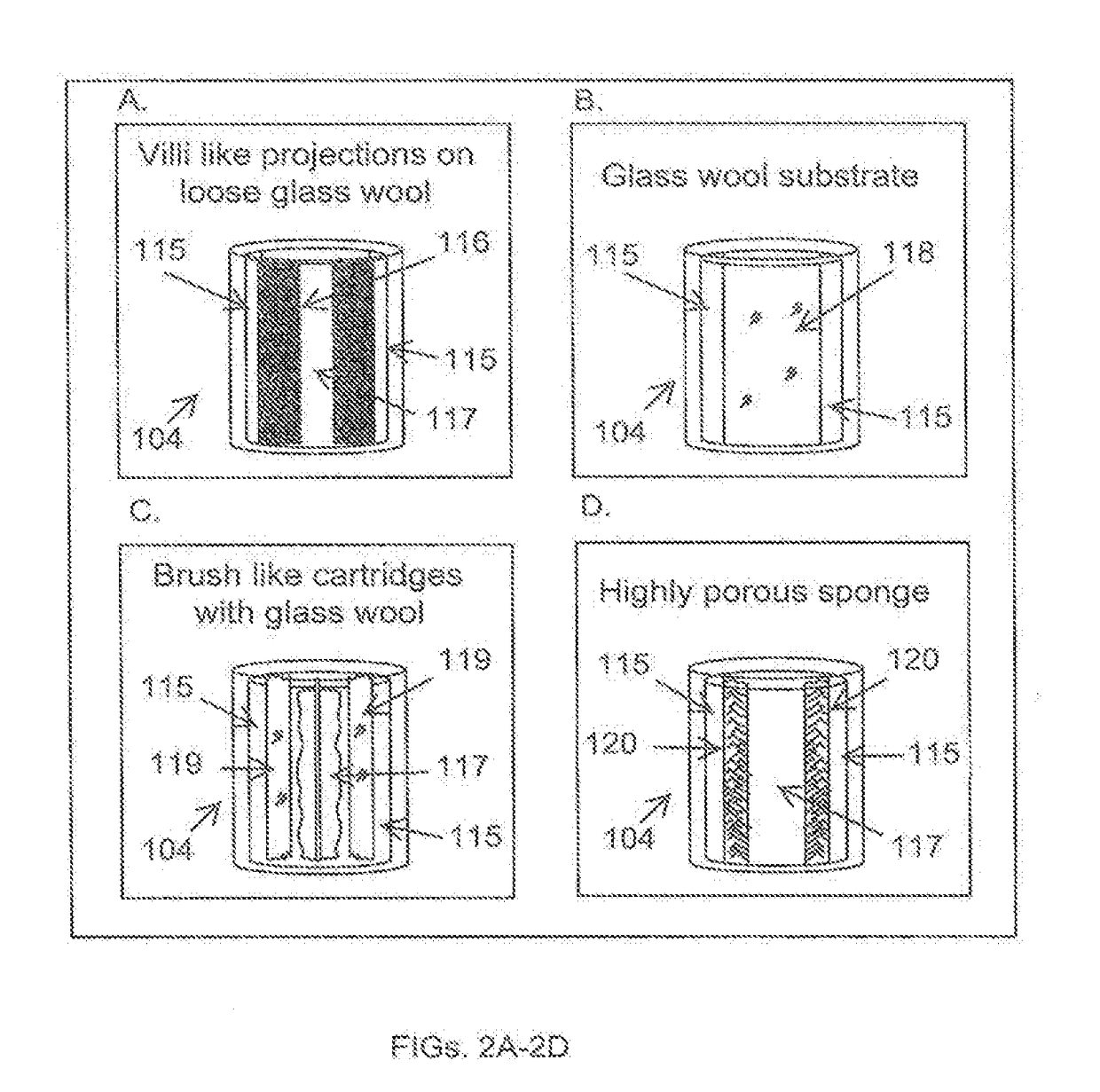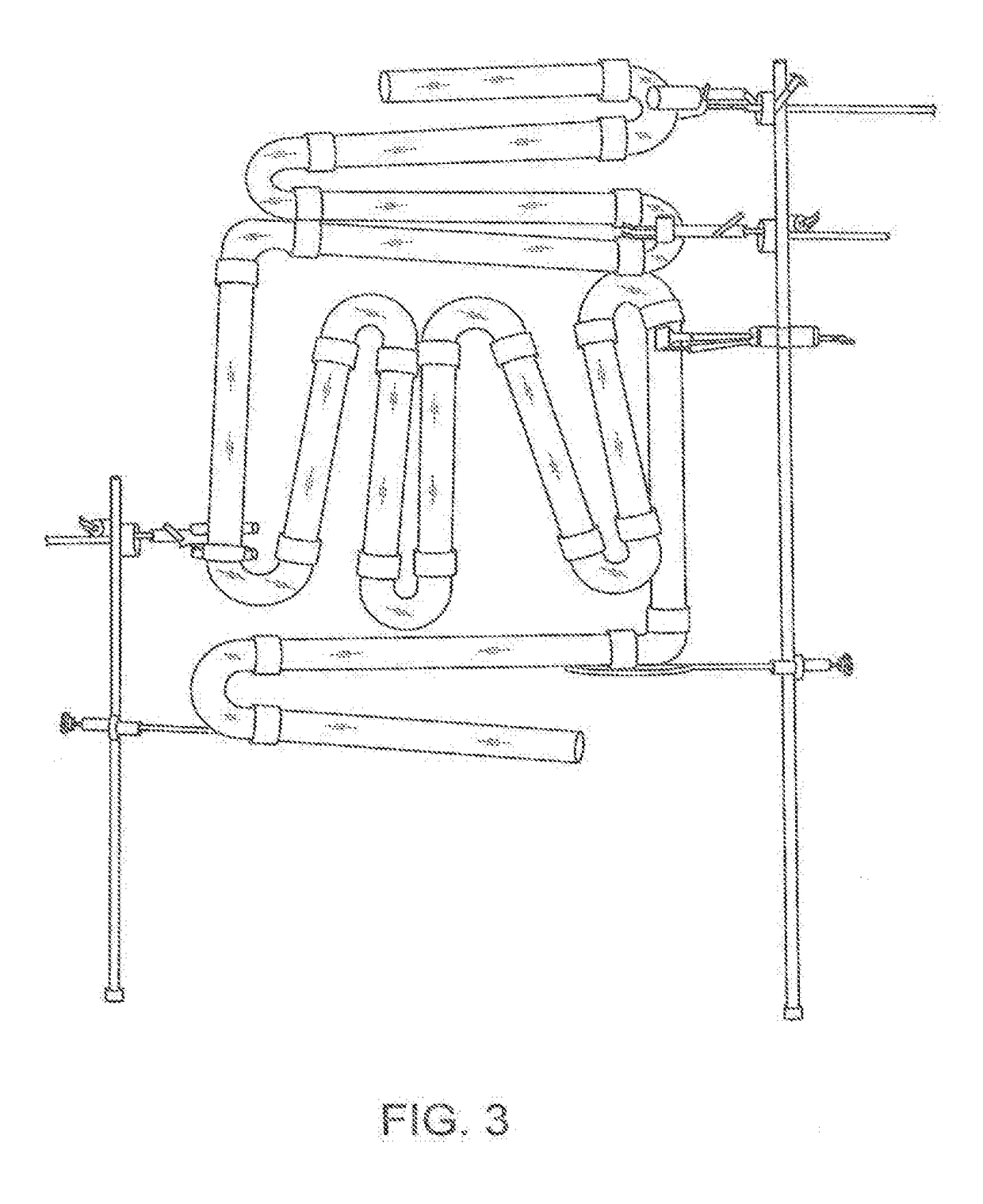Devices, Systems and Methods for the Production of Humanized Gut Commensal Microbiota
a technology of gut microbiota and production method, which is applied in the field of ex vivo production of gut microbiota, can solve the problems of obesity, other conditions, and difficulty in understanding the exact mechanism of microbial influence in disease pathogenesis
- Summary
- Abstract
- Description
- Claims
- Application Information
AI Technical Summary
Benefits of technology
Problems solved by technology
Method used
Image
Examples
example 1
n of Humanized Commensal Gut Microbiome for Various Treatments
[0158]Method
[0159]Microbiota from healthy human volunteers is collected by endoscopy (rectal or oral) and from fecal samples. Other methods such as samples left after surgical procedures can also be used to procure healthy microbiota and would be apparent for any person skilled in the art.
[0160]If the sample is a fecal sample, the donors are screened for the presence of ova and parasites in the stool culture. Specific pathogens to be screened for include, but are not limited to the following: Salmonella, Shigella, Escherichia coli, O157:H7, Yersinia enterocolitica; Campylobacter; Clostridium difficile toxins A and B; Cryptosporidium antigen and Giardia antigen.
[0161]If the sample is a serum sample, the sample is screened for pathogens includes but not limited to the following: HIV-1 and HIV-2; Hepatitis A, B, and C; rapid plasma regain; fluorescent treponemal antibody; and absorbed Treponema pallidum.
[0162]This step is n...
example 2
Species Diversity, Relative Proportion and Resistance Gene Profiling of the Commensal Flora
[0175]Humanized commensal microbiota with high diversity and proportion are produced from a seed culture, and can deliver metabolic benefits when administered to a host. The resistance genes of the microbiome are profiled for the presence of any resistance genes. Increased concentration of clostridial cluster XI and XVI is a feature of designer commensal flora. A typical designer commensal flora includes 500-1000 different species with below relative percentage proportions:
Bacteriodetes: 22-25%
Prevotella: 10%
Faecalibacterium: 5-8%
Eubacterium: 3-5%
Subdoligranulum: 0.5-1.0%
Roseburia: 0.25-0.5%
[0176]Further, the following typical pathogens presences are screened for exclusion:
Helicobacter pyroli
[0177]Enterococcus faecalis
Genotoxic E. coli
Genotoxic B. fragalis
Fusobacterium nucleatum
S. bovis
[0178]C. difficile
[0179]The human gut microbiota is dominated by five bacterial p...
example 3
for Ulcerative Colitis (UC) and Crohns Disease (CD) Using Commensal Microbiome Therapy
[0180]The commensal microbiota therapy for Crohns Disease and Ulcerative Colitis includes a highly diversified humanized commensal flora prepared from multiple donors and screened for species diversity and exclusion UC / CD-specific flora. The commensal flora is screened for resistome and other screening criteria as described in Example-1. The lyophilized commensal microbiota is delivered in two formats for the patients. Retention enema (500 mg commensal microbiome in 50 ml PBS) and as a capsule (500 mg capsule, one capsule / day). Patients were scheduled for a flexible sigmoidoscopy and also completed baseline questionnaires to obtain demographic information, Mayo score, and Inflammatory Bowel Disease questionnaire score.
[0181]Participants were given 50 mL commensal microbiome in PBS as a retention enema once per week for 8 weeks. The enema was administered with the patient in the left lateral positio...
PUM
 Login to View More
Login to View More Abstract
Description
Claims
Application Information
 Login to View More
Login to View More - Generate Ideas
- Intellectual Property
- Life Sciences
- Materials
- Tech Scout
- Unparalleled Data Quality
- Higher Quality Content
- 60% Fewer Hallucinations
Browse by: Latest US Patents, China's latest patents, Technical Efficacy Thesaurus, Application Domain, Technology Topic, Popular Technical Reports.
© 2025 PatSnap. All rights reserved.Legal|Privacy policy|Modern Slavery Act Transparency Statement|Sitemap|About US| Contact US: help@patsnap.com



